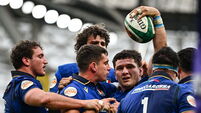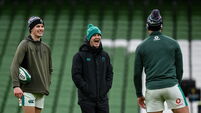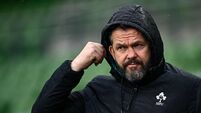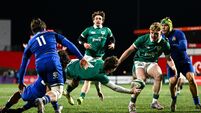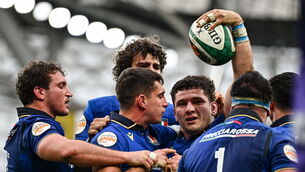'He's a big boy, he's got a toughness about him': Rassie Erasmus on Sam Prendergast
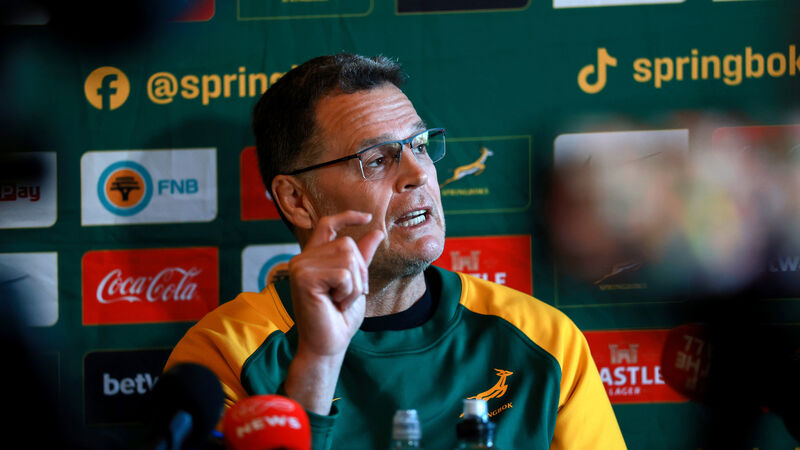
South Africa head coach Rassie Erasmus. Pic: Bryan Keane/Inpho
This week, Rassie Erasmus insists, is not about him. Not true. It may be about the Springboks and Ireland and everything that happens on the park come tea-time on Saturday in Ballsbridge, but Erasmus is always an intriguing subplot.
His former incarnation as Munster boss makes him a person of considerable interest on these shores. His admission here that he would be open to old sidekick and current Leinster defence coach Jacques Nienaber returning for the 2027 World Cup only heightens that.




